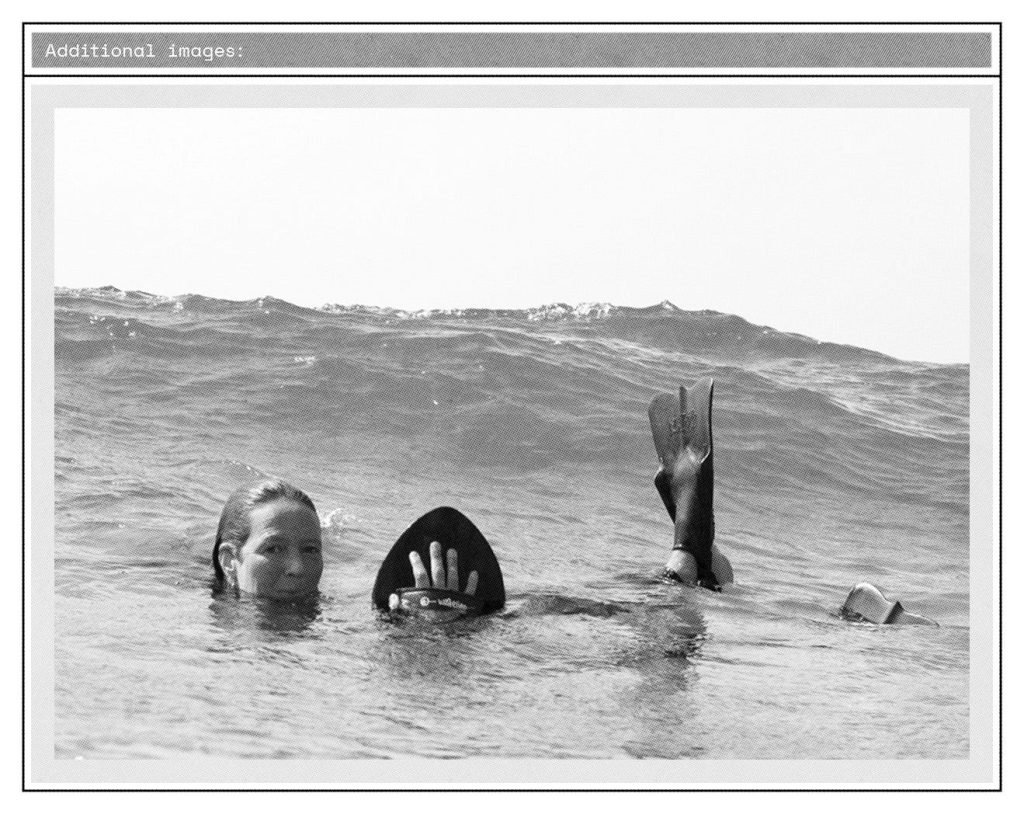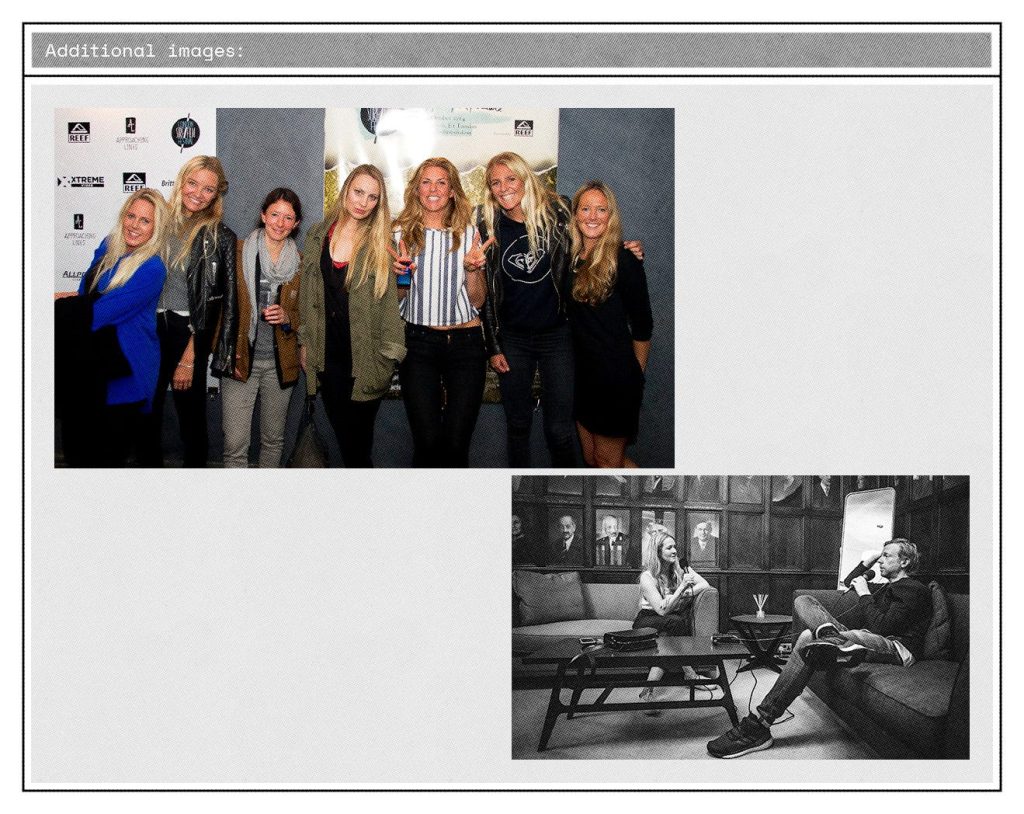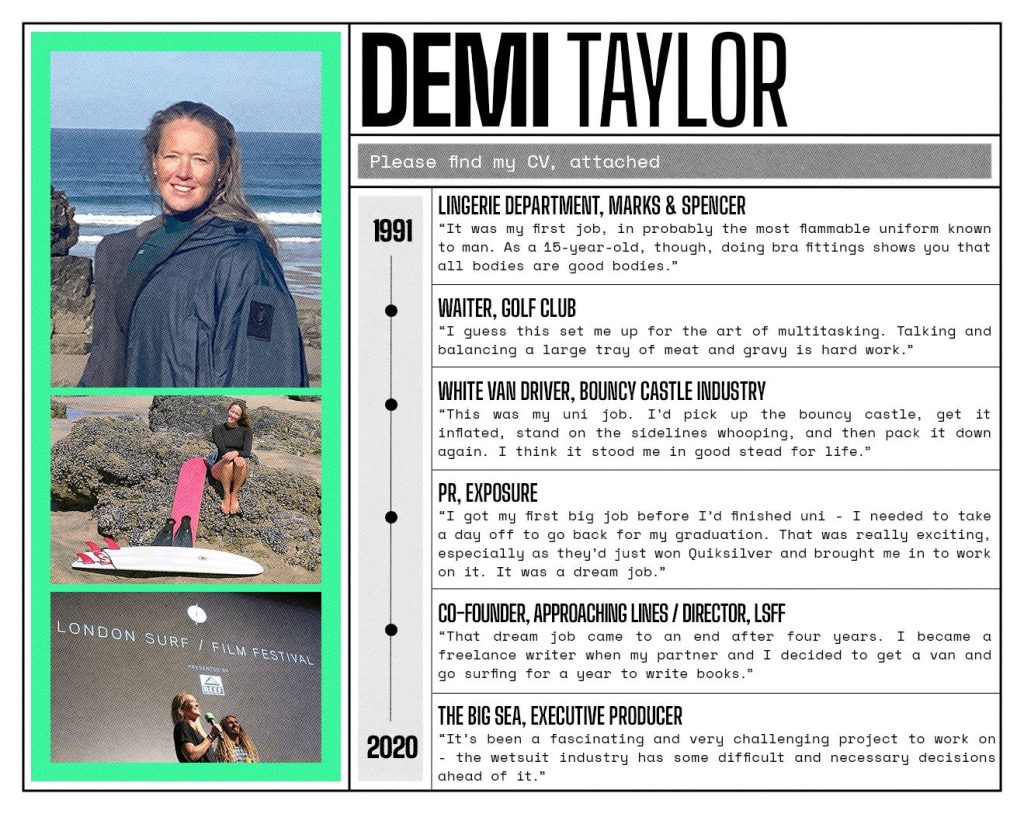“Everyone’s got a book in them.”
So goes the first half of the famous adage (the second half we’ll leave, as it essentially puts your idea of a self-published, post-apocalyptic Titanic-meets-Mad-Max teen romance series into an early grave).
It’s also what Demi Taylor’s mind track was telling her when she signed a “see ya!” letter that ended four years of employment at her dream gig.
“I was like, ‘this is it, I’m never leaving’ when I got my PR job working with Quiksilver,” she tells ACM co-founder Jojo, of the decision to pack in her role at a well-known (but not as good as ACM) comms agency. “But then again, sometimes you’ve just got to do it, right?”
An entire bookshelf of published surfing guides later, and Demi’s risky decision to ditch desk life and take off in a van to explore various worldwide breaks for a year seems like it was a pretty solid one.

Demi’s story is what your intrusive Monday morning “I’m done with this shit, today’s the day I tell my boss to shove it” thoughts are made of. But we can tell you right now it’s not one built on luck and chance, but serious graft, constant evolution, an appetite to do things differently and better for our communities, and hardcore multi talent. She’s a co-founder (of a creative agency), a director (of the London Surf / Film Festival), and most recently, an executive producer (of independent and hugely important documentary, The Big Sea). Impressive on its own, but doing it in an industry dominated by white men? That’s what makes us proud to induct her into the ACM Outsider Insiders series…
People thought I was mad when I quit my dream job. My partner and I wanted to write a book about surfing and snowboarding, so I packed in my PR work for Roxy and Converse after four years. We bought a van, drove around Europe for a year, found a publisher, and wrote ten books with them over a decade while freelancing on the side.
To go it alone you have to be a little bit brave, or at least act brave and tell yourself you are.
When you work for yourself, it’s important to hold on to the reason why you do it and maintain a bit of balance. The balance isn’t always there, and sometimes life takes over or deadlines stack up, but I try to be flexible in my day and get in the sea. For me, surfing is a huge priority.
Every day begins the same way: coffee, porridge, feed the two robins that come to visit. From then, every day is different. My creative agency, Approaching Lines, puts narrative at the centre of everything we do. That could be an event, an interview, a client call. Or, it could just be a day in the surf!
I just like being in the sea, whether it’s surfing, body surfing, or swimming. I love mat surfing, too; I find it really liberating. You can’t really control it. You have to give in and let the mat be in charge. It’s quite kooky, too, and does not look cool: you walk down to the break in flippers.
We’ve been working on The Big Sea for three years. It investigates surfing’s toxic relationship with neoprene, which is the result of a hideous chemical process that makes Chloroprene rubber – the chemical name for neoprene.
The entire community around the manufacturing plant has a much higher risk of developing cancer. No one in the community is untouched by cancer, and it’s an area that has already experienced extensive racial injustice; the plant has risen from the foundations of a former slave plantation.
The reaction has been really heartening. People have begun to understand the impact wetsuits have had on the lives of a community they may not have considered before.
There are definitely some “yeah, buts…”, and people who don’t want to engage, whether that’s individuals, media or brands. But the conversations have been very encouraging; people are prepared to change their mindsets, and examine and take responsibility for their supply chains.
We started the London Surf / Film Festival in 2011. We wanted to create a feeling of community and an event we actually wanted to go to, but also promote all the talent here in the UK, in Europe, and around the world.
No, we don’t have a women’s film category. I didn’t want to make it a separate thing to the main event. I wanted women to have level pegging. I wanted there to be female films and narratives, but I wanted them to be seen in the same context as the men’s.
For the last two years, we’ve had a 50/50 split between male and female entries. Four years ago I think we had just two female entries.

The next generation of female writers, filmmakers and photographers show real confidence in their work. There’s a strength in the women out there who are making great creative work, which is perhaps something I didn’t have when I started out.
If you’re on a journey and there’s an opportunity to help another woman, do it.
You have to know your value. At any point in your career you’ll be asked to do something for “the exposure”. Know your value and know the value of other people – have your own personal integrity.
OUT in the Line-up is about a gay surfer looking for his community. We showed that film about six years ago on the festival pass – a ticket for all the films. I noticed on Facebook people were liking and sharing every film except this one. And when the director flew in from Australia, 50 people attended his screening, compared to 300 in the screenings before and after.
Equality is a challenge for the surf industry. And I mean all types of equality.
The surf world has always been white male focussed. We’ve fought to make things more equal for women, and now that journey is going to continue.
Demi Taylor: A Résumé
Ever wondered what kind of work experience gets you a top job in the outdoors? Here’s one way of doing it…
